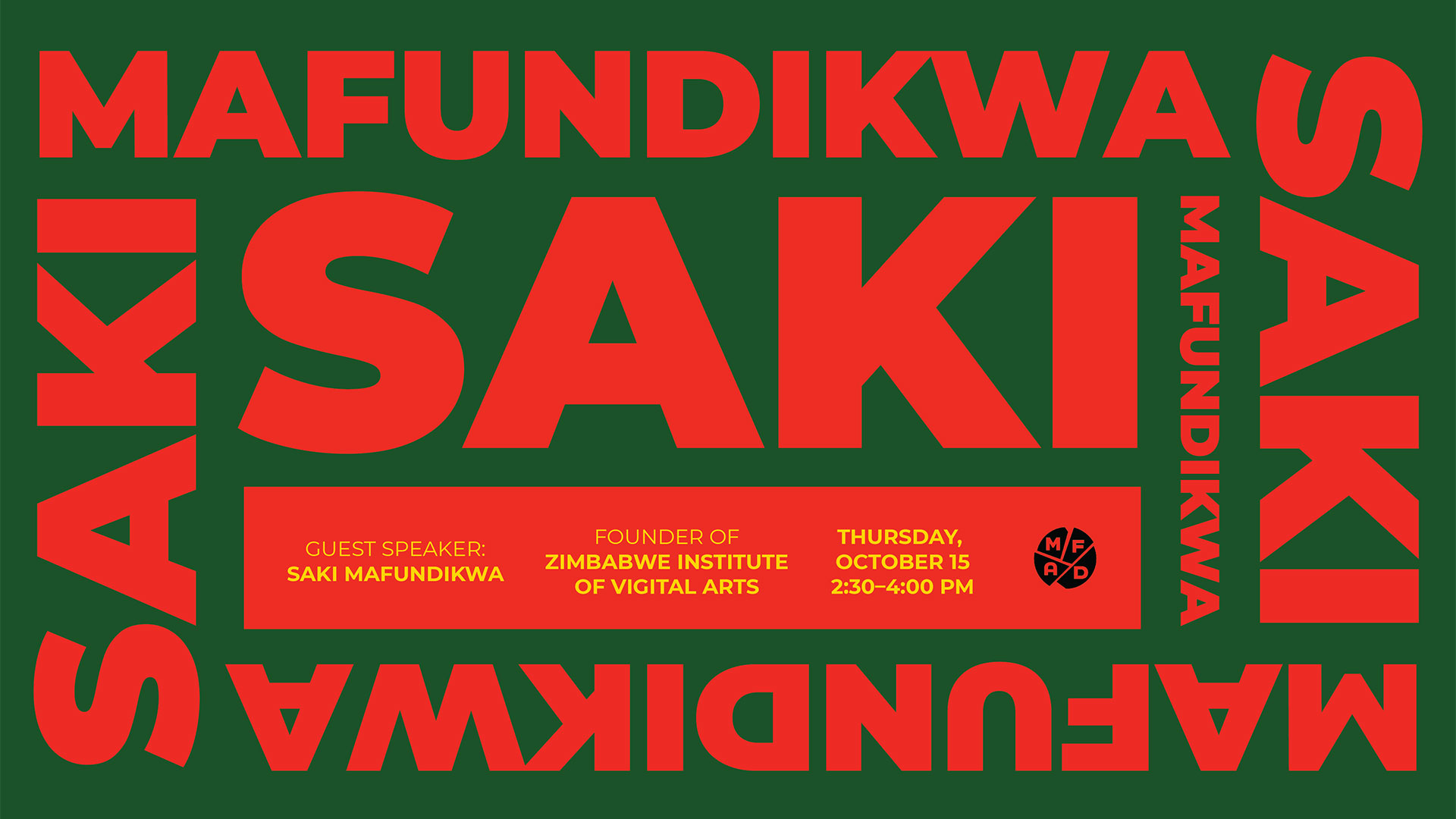Guest Lecture: Saki Mafundikwa
Emily Roemer
On Thursday October 15th, Saki Mafundikwa Zoomed in from Zimbabwe. What a cool experience this was. He gave us encouraging advice and challenged us to consider our roles as designers. Rhetorically he asked: ‘Who are you? What defines you? This will come out in your design.”
In under two hours Saki was able to lightheartedly convince all of us that starting a design program in a different country was the thing to do. He made it seem like the greatest path possible. When asked if he would do it all over again he replied, “Hell yeah, I would do it all again.”
When in the USA, he attended Yale University as the first African to get accepted and attend the design program there. He then moved to New York and said he was ‘intoxicated by the city.” Can we blame him? New York is the best city on earth. He then moved back and started the internationally acclaimed school, ZIVA. In February ’99 he opened the doors and within a month had 4 students and within a year 7 students. He has his students draw their own alphabets with their unique background and identities in mind. He loved the fact that his school was bringing different races together.
Another notable thing Saki did was write and design a book called “African Alphabets”. He was the first person to write a book about African alphabets and the book now goes for a really high price. Sadly, I will not be owning it anytime soon but hopefully I can take a look at it someday. The way he talked about this book and the process of thinking of the concept of the book during his Yale interview then executing it for his MFA thesis was really inspiring to hear for all of us. From this experience he recalls, “As students you need to remember to always be aware. Always be in the moment. Don’t let opportunities literally walk away.”
You can check out Saki Mafundikwa in his TED talks or at this link – https://www.aiga.org/design-journeys-saki-mafundikwa – a really nice overview of his life. To conclude, he inspired us to always be our own personal selves. He said, “Did your grandmother tell you stories around the dinner table? Tell those stories, its who you are. It makes you and it comes through in your work.”
Thank you so much Saki, to say you inspiring would be an understatement.



